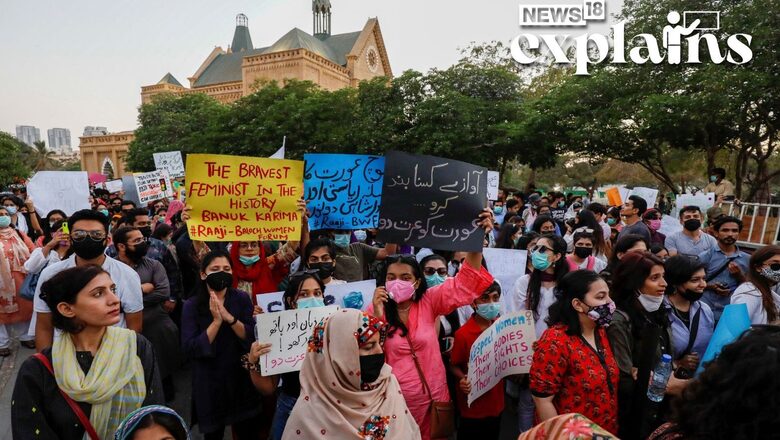
views
The “controversial cards and banners” typically shown by march participants, as well as security concerns, were listed as grounds for the decision, which was communicated to march organisers late Friday. These deal with with issues such menstruation, divorce and sexual harassment, deemed controversial by authorities in Pakistan.
But What is Pakistan’s Problem With Aurat March?
According to Hina Husain, a Pakistani-Canadian writer, the Aurat March has found controversy since 2018, when when slogans such as “Mera Jism, Meri Marzi” (“My body, my choice”) sparked public outcry, and the event was branded “un-Islamic.”
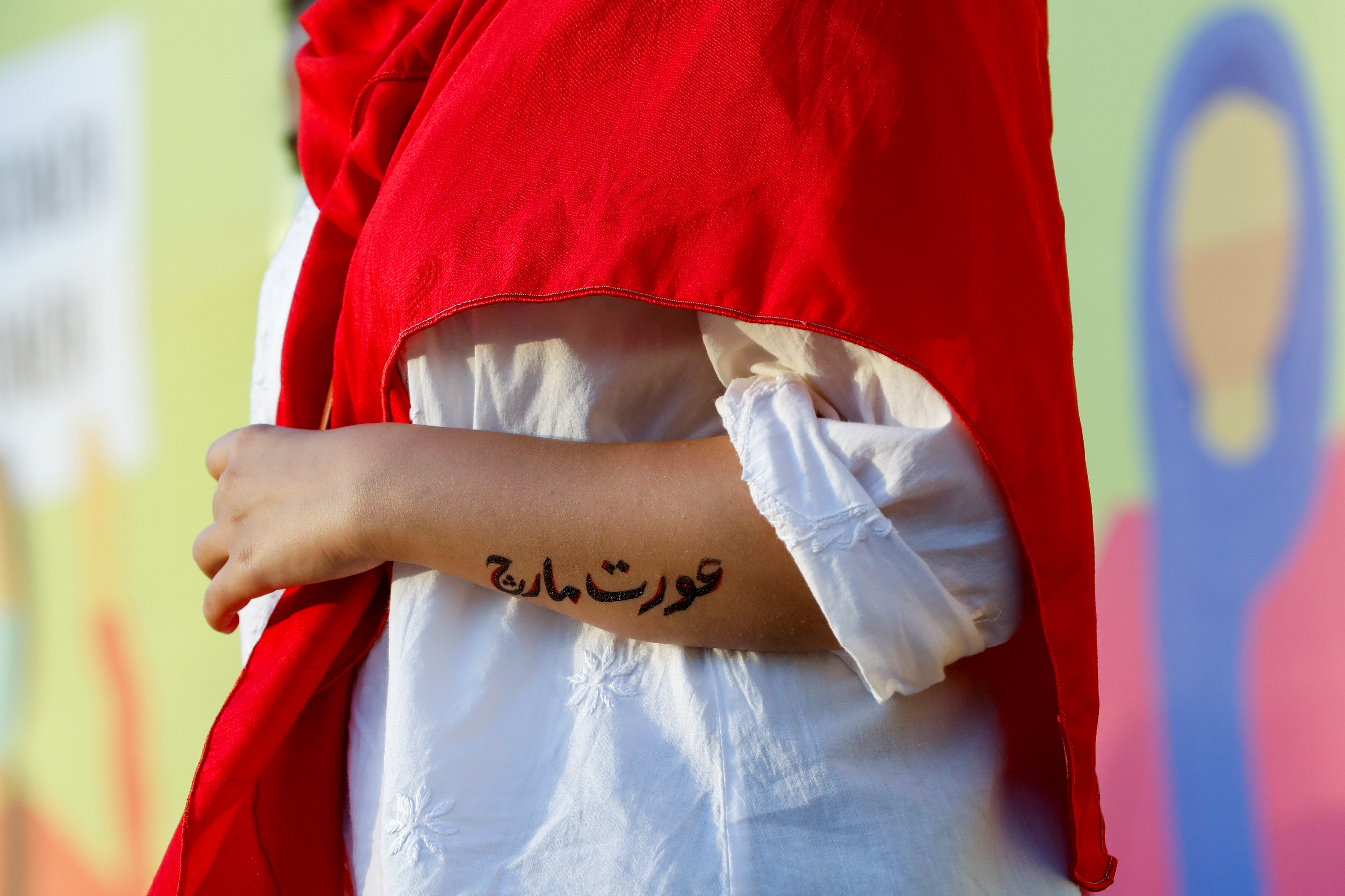
As per Husain in the Unherd report, the Aurat March and the philosophy it preaches are commonly labelled as “foreign funded” in order to advance “Western interests” in Pakistan.
Many critics have said that the organisation just represents the country’s bourgeoisie’s first-world problems, while ignoring the obstacles of poverty, illiteracy, and domestic abuse suffered by millions of working- and middle-class Pakistani women. This, according to Aurat March, is deliberate propaganda designed to discredit the movement, Husain writes.
Who Organises the March?
As per reports, since 2018, numerous organisations of women have organised the Aurat Azadi March and the Aurat March. Aurat Azadi March is organised by a socialist feminist group, whilst Aurat March is organised by a liberal feminist group. The same year, a group of individual women known as the “Hum Aurtein” collective in Karachi and Lahore launched the Aurat March.
While a lot of rhetoric revolves around the march in Pakistan, the Aurat March is carried out by millions of women who having risen to middle-class status since the 1990s, reject the notion that modernization in Pakistan must be in lockstep with the West. “Instead, these women embrace “Islamic feminism” and want to be a part of the global Muslim community, drawing inspiration from nations such as Turkey. They promote for women’s rights within an Islamic context, encouraging women to interpret the Quran and highlight the religion’s teachings on equality,”.
‘Mera Jism Meri Marzi’ vs Haya March
“Slogans like ‘Mera jism meri marzi,’ ‘Apna khana khud garam ker lo,’ ‘I am divorced and happy’ express defiance against these societal norms, according to a report by The News.
The Aurat March rallies have courted controversy because of banners and placards waved by participants that raise subjects such as divorce, sexual harassment and menstruation.
Organisers and participants have been accused of promoting Western, liberal values and disrespecting religious and cultural sensitivities.
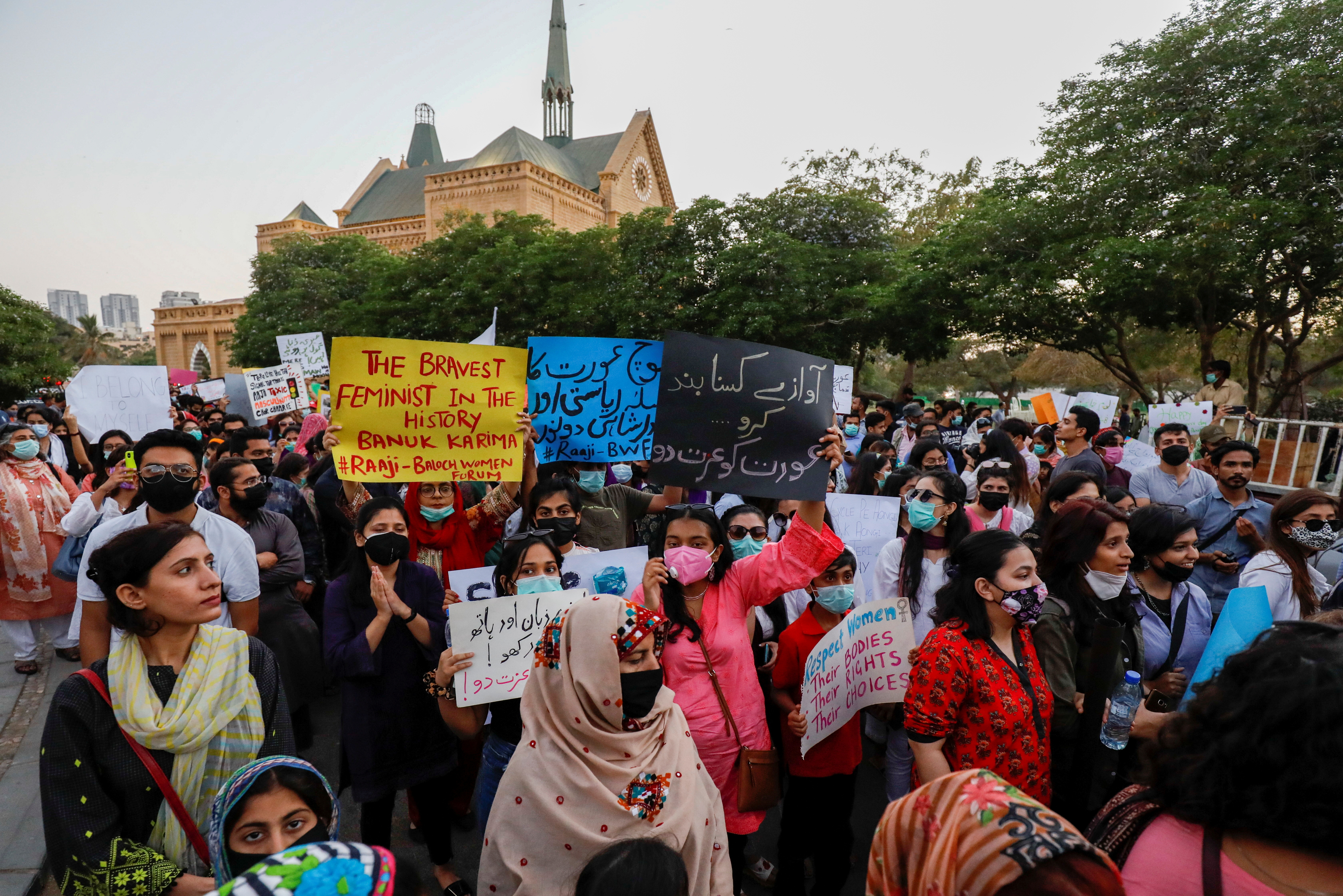
Much of Pakistani society operates under a strict code of “honour”, systemising the oppression of women in matters such as the right to choose who to marry, reproductive rights and even the right to an education.
Hundreds of women are killed by men in Pakistan each year over “honour”.
Counter-protests dubbed “Haya (modesty)” marches are commonly staged by religious groups to call for the preservation of Islamic values.
Lahore authorities have allowed this year’s Haya March to be held despite the ban on the Aurat March.
What Do Aurat March Organisers Say?
Authorities in the capital Islamabad, citing security concerns, have relegated the Aurat March to a city park where a woman was gang raped in February.
“We are a feminist movement, we will not be in parks but rather on the streets,” a statement by march organisers there said.
In 2020, groups of hardline Islamist men turned up in vans and hurled stones at women participating in the Aurat March.
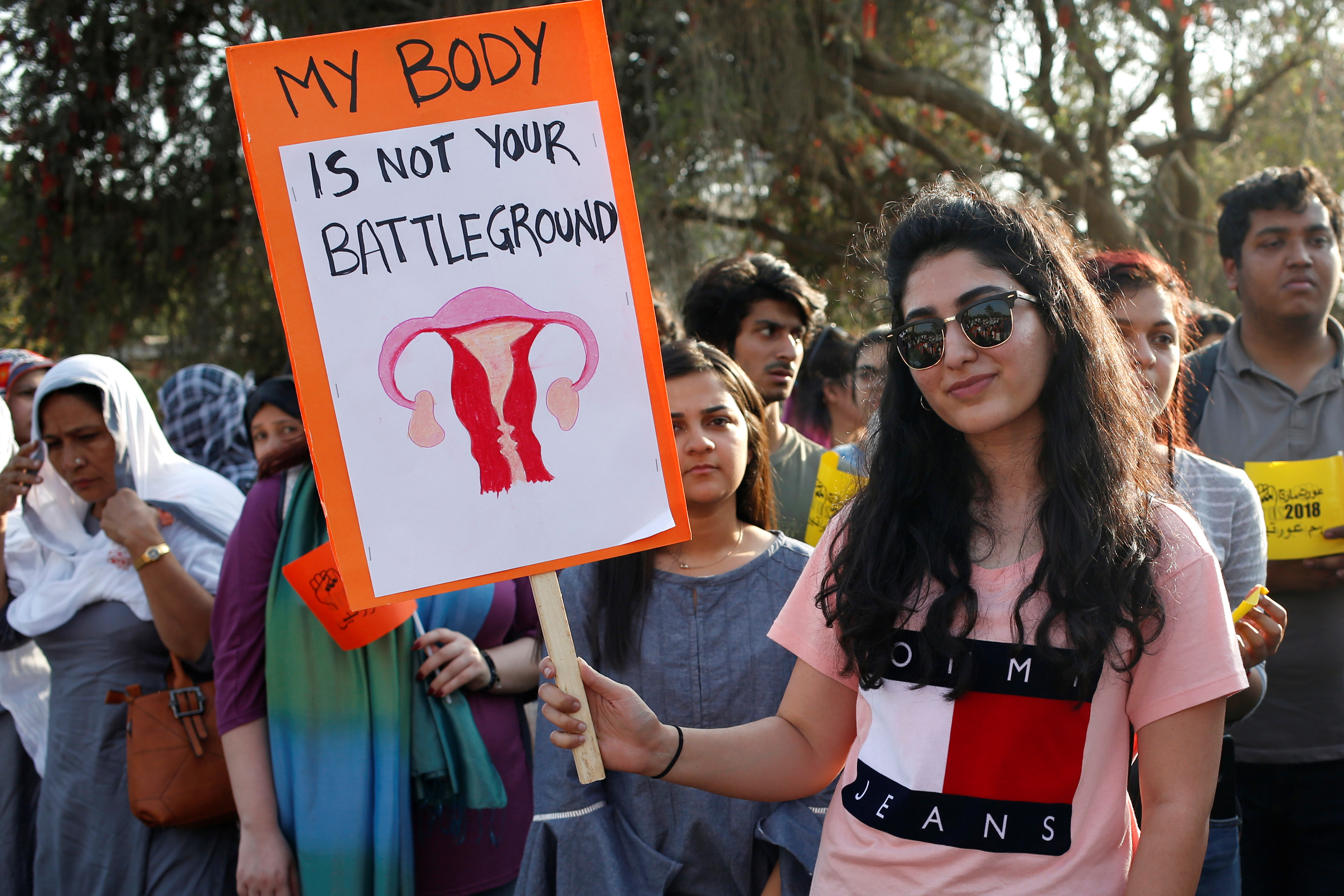
Women have long fought for basic rights in Pakistan, where activists say men commit “pervasive and intractable” violence against them.
“It’s a violation of our rights. This raises questions about the state’s ability to manage the right to freedom of assembly for both groups,” Hiba Akbar, an organiser for Aurat (women’s) March Lahore, told AFP.
With inputs from AFP
Read all the Latest Explainers here
















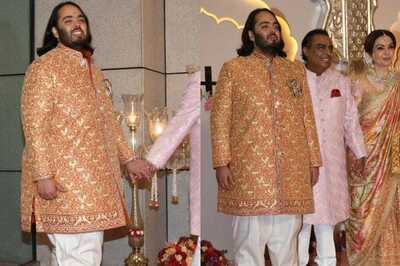

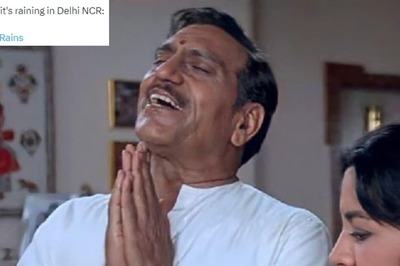

Comments
0 comment